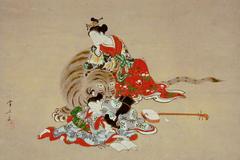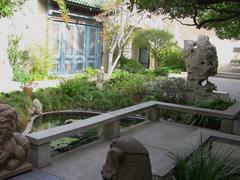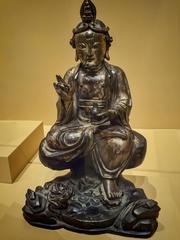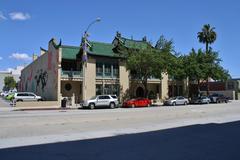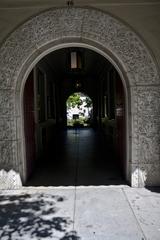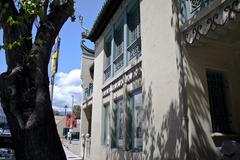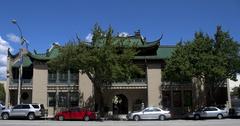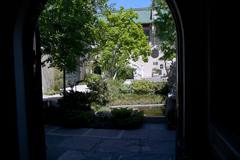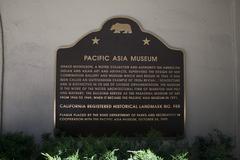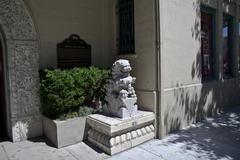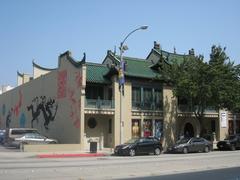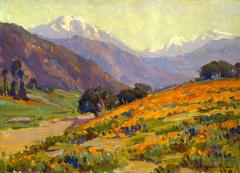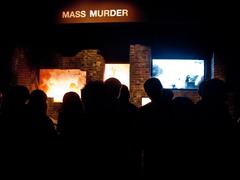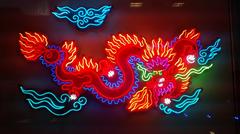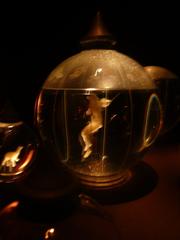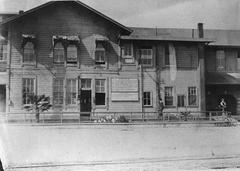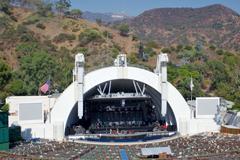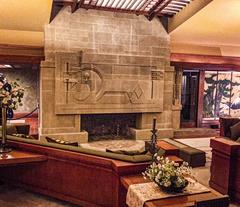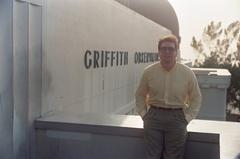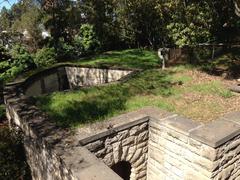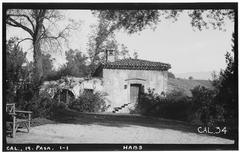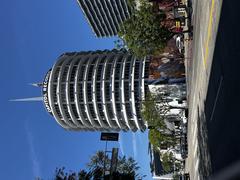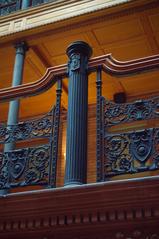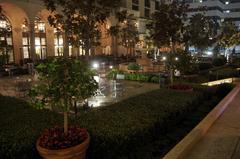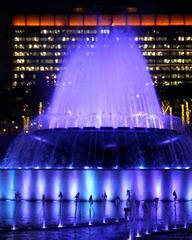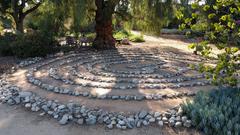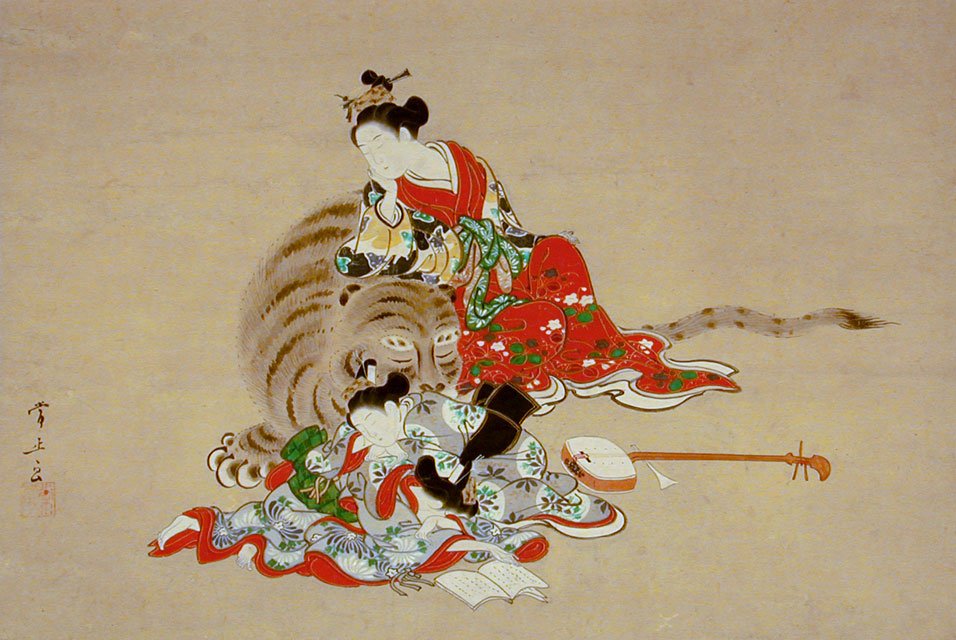
Pacific Asia Museum Visiting Guide: Hours, Tickets, and Highlights
Publish Date: 31/07/2024
Overview of Pacific Asia Museum
Nestled in the vibrant city of Pasadena, California, the USC Pacific Asia Museum stands as a beacon of cultural heritage, dedicated to celebrating the rich and diverse art and traditions of Asia and the Pacific Islands. This esteemed museum, located at 46 North Los Robles Avenue, has evolved over nearly a century to become a vital center for intercultural understanding and appreciation. Originally a curio shop established by Grace Nicholson in 1924, the museum’s building itself is a work of art, designed in the style of a Chinese Imperial Palace Courtyard, complete with intricately imported materials from China (Frommers). As a registered California State Historic Landmark, its serene courtyard garden and traditional architectural elements provide a tranquil setting for visitors to immerse themselves in the museum’s extensive collections (Discover Los Angeles).
Since its affiliation with the University of Southern California (USC) in 2013, the museum has further cemented its role as an academic and cultural hub, offering a plethora of educational programs and exhibitions aimed at fostering a deeper understanding of Asian and Pacific Islander cultures (Frommers). This comprehensive guide aims to provide visitors with all the essential information needed to make the most of their visit, from operating hours and ticket prices to special programs and nearby attractions.
Contents
- History and Significance of the USC Pacific Asia Museum
- Origins and Architectural Heritage
- Evolution and University Affiliation
- USC Pacific Asia Museum Visiting Hours and Ticket Information
- Collections and Exhibitions
- Cultural and Educational Impact
- Community Engagement and Accessibility
- Future Directions
- Travel Tips and Nearby Attractions
- FAQs
History and Significance of the USC Pacific Asia Museum
Origins and Architectural Heritage
The USC Pacific Asia Museum, located at 46 North Los Robles Avenue, Pasadena, California, has a rich history that dates back to the early 20th century. The museum’s origins can be traced to Grace Nicholson, an art dealer and collector whose passion for Asian art led her to establish a curio shop in 1924. As her collection grew, Nicholson commissioned the construction of a new building designed in the style of a Chinese Imperial Palace Courtyard. This architectural marvel features roof tiles, stone, marble carvings, bronze, and copper imported from China, and its arched entrance is a replica of the Buddhist library in Beijing (Frommers).
The building itself is a registered California State Historic Landmark, celebrated for its intricate design and traditional courtyard garden inspired by classic Chinese gardens. The courtyard, adorned with plants, Taihu rocks, and a koi pond, serves as a serene introduction to the museum’s extensive collection (Discover Los Angeles).
Evolution and University Affiliation
In 1943, Grace Nicholson donated the building to the city, and it initially housed the institute that would become the Norton Simon Museum. However, in 1971, the building was repurposed to establish the Pacific Asia Museum, dedicated to the art and culture of Asia and the Pacific Islands. The museum’s affiliation with the University of Southern California (USC) began in November 2013, further enhancing its academic and cultural significance (Frommers).
USC Pacific Asia Museum Visiting Hours and Ticket Information
For those planning a visit, the USC Pacific Asia Museum is open Wednesday through Sunday from 11:00 AM to 5:00 PM. The museum is closed on Mondays and Tuesdays, as well as on certain holidays. Admission rates are $10 for adults, $7 for seniors, students, and educators, and free for children and members. The museum also offers free admission on Thursdays from 5:00 PM to 8:00 PM and on the second Sunday of each month (USC Pacific Asia Museum).
The museum is easily accessible via public transportation, with the Metro Gold Line’s Memorial Park Station located about half a mile away. Free parking is available in the museum’s parking lot on the corner of Los Robles Avenue and Union Street (USC Pacific Asia Museum).
Collections and Exhibitions
The USC Pacific Asia Museum boasts a collection of over 15,000 objects, spanning more than 4,000 years and covering regions from Persia to the Pacific Islands. This extensive collection includes Japanese, Chinese, and “Orientalist” graphic art, East Asian ceramics, costumes, and textiles. Notably, the museum houses one of the largest collections of Japanese folk art outside of Japan (Discover Los Angeles).
The museum’s exhibitions are designed to foster intercultural understanding and appreciation. Current exhibitions include “Humaira Abid: Searching for Home,” which explores the global refugee crisis through sculpted wooden creations, and “A Momentous Moment in Time of Passage and Landing” by muralist Dave Young Kim, celebrating the journeys of diasporic communities (USC Pacific Asia Museum).
Cultural and Educational Impact
The USC Pacific Asia Museum plays a vital role in promoting intercultural understanding through its diverse programs and exhibitions. The museum’s mission is to create inspiring encounters with the art, history, and culture of Pacific Asia, thereby elevating our shared sense of humanity (USC Pacific Asia Museum).
Educational programs at the museum include school tours, family days, and large-scale cultural festivals. These programs are designed to engage a diverse audience, including local communities in the San Gabriel Valley and greater Southern California. The museum also offers workshops, such as “Object Stories: A Writing Workshop with Narrated Objects,” which encourages participants to explore the power of objects in telling stories of love, loss, displacement, and survival (USC Pacific Asia Museum).
Community Engagement and Accessibility
The USC Pacific Asia Museum is committed to being a platform for community artists and fostering a deeper understanding of Asian and Pacific Islander cultures. The museum’s reopening after the pandemic was marked by an “Opening and Closing Weekend” event, featuring an exhibit on identity, migration, race, and gender by seven Asian female artists. This event highlighted the museum’s dedication to showcasing diverse voices and perspectives (USC Today).
Accessibility is a key focus for the museum, with all public spaces and the garden being wheelchair accessible. The museum also offers free admission on the second Sunday of each month, making it accessible to a broader audience (USC Pacific Asia Museum).
Future Directions
As the USC Pacific Asia Museum looks to the future, it plans to build on the lessons learned during the pandemic. The museum has tapped into a global audience through its virtual programs, which will continue to be a staple of its offerings. This approach ensures that art and culture are accessible to people who may not have a museum in their own communities (USC Today).
The museum’s upcoming exhibition, “Cai Guo-Qiang: A Material Odyssey,” promises to be a significant addition to its already impressive lineup. This exhibition will further solidify the museum’s reputation as a leading institution dedicated to the arts and culture of Asia and the Pacific Islands (USC Pacific Asia Museum).
Travel Tips and Nearby Attractions
For those visiting the USC Pacific Asia Museum, consider exploring other nearby attractions in Pasadena, such as the Norton Simon Museum, the Huntington Library, and Old Pasadena for a full-day cultural experience. Guided tours are available at the museum for a more in-depth understanding of the exhibitions and their significance.
FAQs
What are the USC Pacific Asia Museum’s hours?
The museum is open Wednesday through Sunday from 11:00 AM to 5:00 PM and is closed on Mondays, Tuesdays, and certain holidays.
How much are tickets to the USC Pacific Asia Museum?
Tickets are $10 for adults, $7 for seniors, students, and educators, and free for children and members. The museum offers free admission on Thursdays from 5:00 PM to 8:00 PM and on the second Sunday of each month.
Conclusion
In summary, the USC Pacific Asia Museum is a cultural gem that offers a unique blend of historical significance, architectural beauty, and a diverse collection of Asian and Pacific Islander art. Its commitment to education, community engagement, and accessibility makes it a must-visit destination for anyone interested in the rich cultural heritage of the Pacific Asia region.
Stay updated on the latest exhibitions and events at the USC Pacific Asia Museum by following them on social media or visiting their official website. Don’t forget to download the mobile app Audiala for a richer, interactive experience during your visit.
